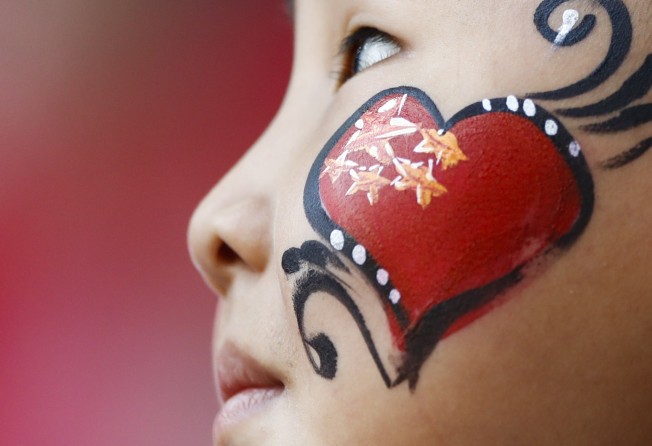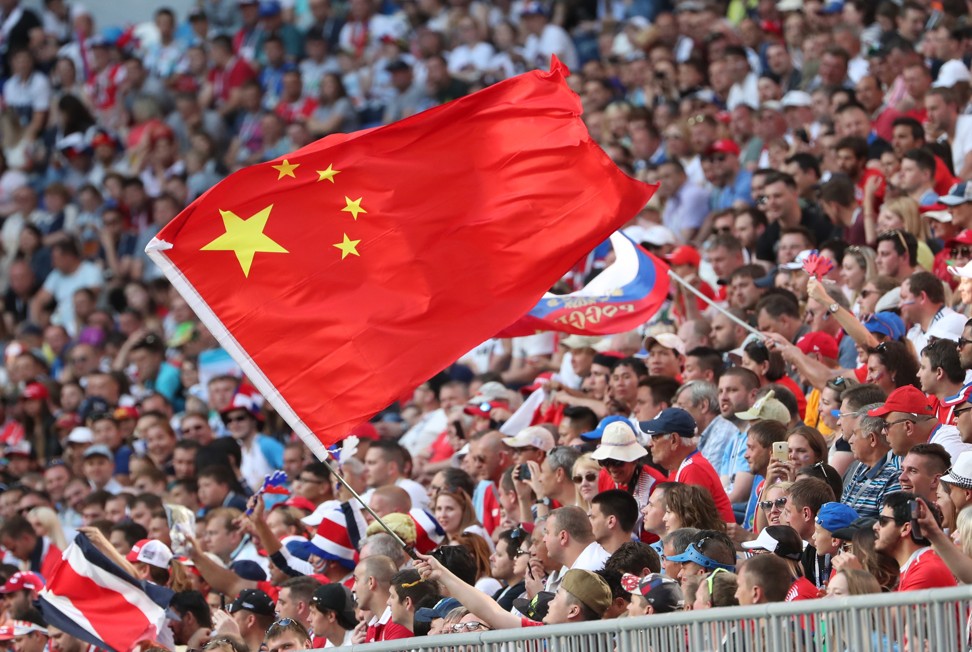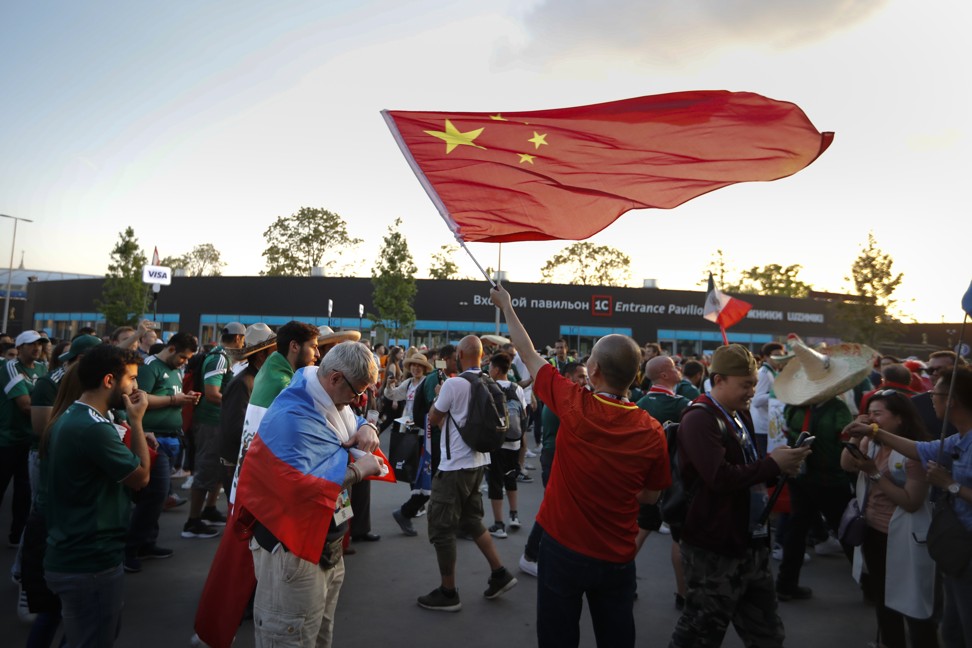Fifa World Cup: China fan envy as Beijing casts covetous glances towards Japan and South Korea
Beijing authorities keen to learn from Japanese and South Korean counterparts as they seek to establish China among football’s elite

Outside the Ekaterinburg Arena there is the briefest glimpse of the enmity that exists between China and Japan as a solitary fan waves a Chinese flag above his head. “Sen-e-gal! Sen-e-gal!” he chants, halfheartedly, in the lead-up to the African nation’s meeting with Akira Nishino’s team.
Fans from elsewhere – Japan, Senegal, host nation Russia and around the world – pay little attention and a 2-2 draw between the teams ensures both nations remain in contention for a place in the next phase of Russia 2018.
Japan’s performance has come as a surprise following a build-up that was far from ideal, with coach Vahid Halilhodzic sacked and Nishino parachuted in just two months before the finals. A fractious lead-in has given way to performances against Colombia and Senegal more in keeping with the country’s World Cup expectations.
For all the flag waving fan’s backing of Japan’s opponents, a mutual respect exists between the regional rivals with Chinese authorities keen to learn from their Japanese and South Korean counterparts as they seek to establish the country among the game’s elite.
Both have records to envy. The Japanese are appearing at a sixth straight World Cup, while the Koreans qualified for their first finals in 1954 and have been ever-presents since 1986, reaching the semi-finals when they co-hosted the tournament with Japan in 2002. That long-standing status among the elite brings covetous glances from Beijing.
“Chinese fans are interested in these games because the Korean and Japanese players are similar physically,” said football writer Zhou Chao, who works for online portal Sina.
“We come from the same area and we want to see how they perform against teams from Africa and Europe so we can learn.”
Mainland authorities have long looked towards Japan for guidance in how to establish the playing base required to enhance the prospects of realising the potential of a nation of 1.4 billion people.

Ex-national team bosses Takeshi Okada and Philippe Troussier have been sought out for their input over the past decade while Tokyo-based Tom Byer has been heavily involved in putting in place a system that seeks to improve the quality of development in schools around the nation.
“Now many young Japanese coaches are in China working at under-17, under-18 and under-20 level,” said Okada, who led Japan to the finals of the 1998 and 2010 World Cup. “Many Japanese coaches.
“But at the top teams, the Chinese club owners don’t want to improve the young players. They only want to improve their main team. I hope that will change.”
Okada, one of only two Asian coaches to lead a team to the knockout phase of the World Cup, has had his own experience in China having worked as head coach of Hangzhou Greentown for two seasons from 2012.
He believes that while the influx of money from Chinese business has seen the country look elsewhere for inspiration, the Samurai Blue’s showing in Russia should ensure China’s football community turns its gaze back towards Japan.
“Before the people involved in Chinese football respected Japanese football, but recently they have wanted to learn from Europe because they have a lot of money,” he said. “But after the World Cup I hope they will look to us again.”
Even as some have shifted their attention towards the west, Troussier – himself with ample experience in China having worked in both Shenzhen and Chongqing – stresses the football relationship between the two countries is respectful and robust.
“The Chinese realise that Japan is an advanced football nation and they know Japan has done well at the World Cup and they have great infrastructure with great technical policies,” said the Frenchman, who was Japan coach during the 2002 World Cup. “They accept that.

“When I was in China I used the example of Japan to the Chinese and I explained to them that you have to use your neighbours. Japan is building a great relationship with China through football. The J. League have sent people there to help. There is a great synergy and a great relationship.”
While more partisan fans in Japan might wonder why their country would help a rival nation improve, Okada insists standards across Asian football need to rise if the Japanese and others around the region are to close the gap on the leading powers of the global game.
“It’s important for Japanese football to help China because when the Japan national team is playing international ‘A’ level matches, more than half are against Asian teams and we must play strong teams if we are to improve,” he said.
“OK, Japan is number one in Asia but for European and South American teams the level is still going up, so the level in Asia must go up. We need China and the other teams in Asia to be strong.”